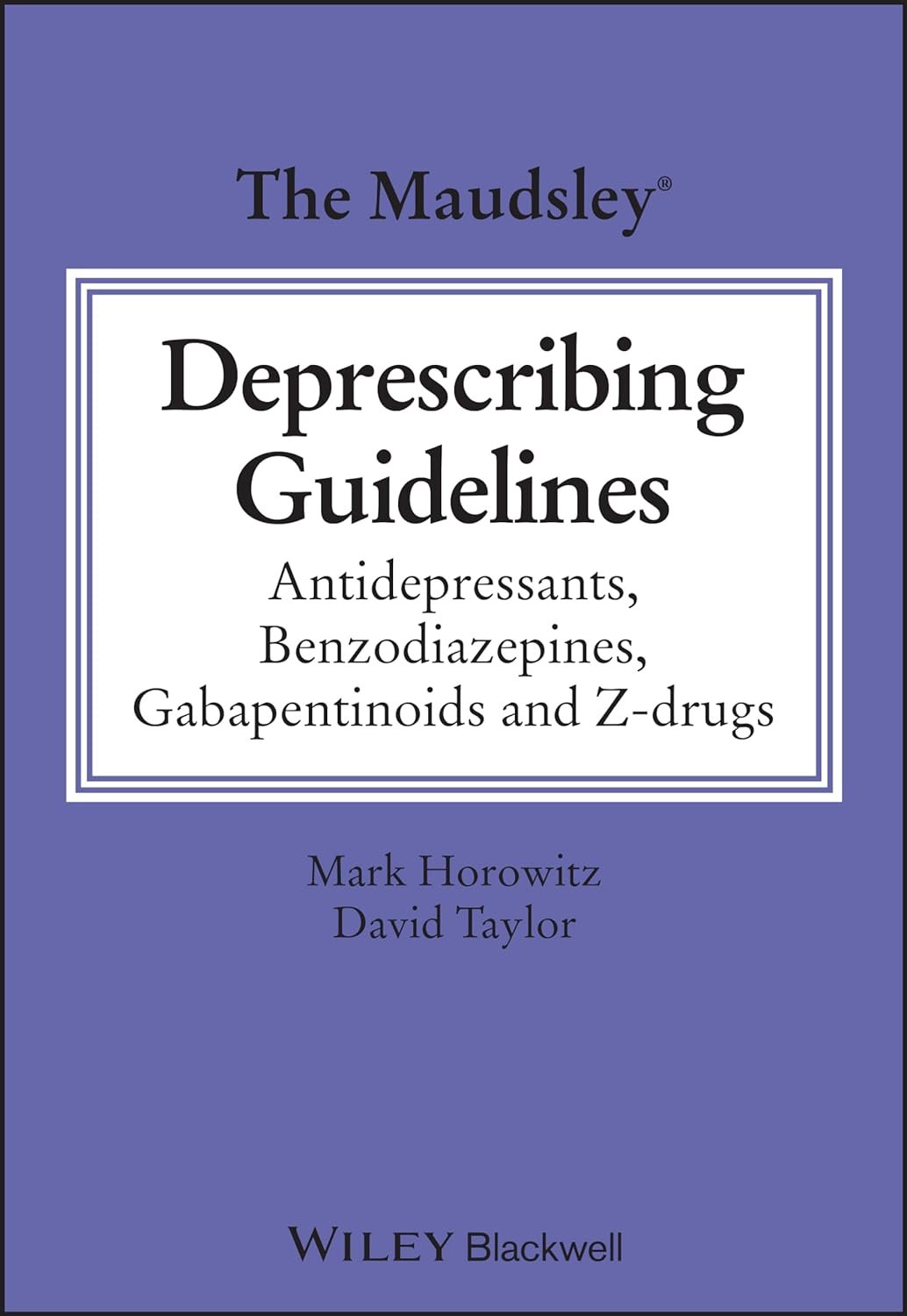The Maudsley® Deprescribing GuidelinesComprehensive resource describing guidelines for safely reducing or stopping (deprescribing) antidepressants, benzodiazepines, gabapentinoids, and z-drugs for patients, including step-by-step guidance for all commonly used medications, covering common pitfalls, troubleshooting, supportive strategies, and more.
Most formal guidance on psychiatric medication relates to starting or switching medications with minimal guidance on deprescribing medication. In 2023, the World Health Organisation and the United Nations called for patients, as a human right, to be informed of their right to discontinue treatment and receive support.
The Maudsley Deprescribing Guidelines fill a significant gap in clinician guidance by providing comprehensive and authoritative information on this important aspect of treatment.
This evidence-based handbook provides an overview of principles for deprescribing. It is derived from fundamental scientific principles, the latest research on this topic, and emerging insights from clinical practice (including from patient experts).
Building on the recognized brand of The Maudsley Prescribing Guidelines and the prominence of the authors’ work, including in The Lancet Psychiatry on tapering antidepressants (the most read article across all Lancet titles when it was released). The Maudsley Deprescribing Guidelines cover topics such as:
- Why and when to deprescribe antidepressants, benzodiazepines, gabapentinoids, and z-drugs
- Barriers and enablers to deprescribing include physical dependence, social circumstances, and knowledge about the discontinuation process.
- Distinguishing withdrawal symptoms, such as poor mood, anxiety, insomnia, and a variety of physical symptoms, from symptoms of the underlying disorder that medication was intended to treat
- The difference between physical dependence and addiction/substance use disorder
- Explanation of why and how to implement hyperbolic tapering in clinical practice
- Specific guidance on formulations of medication and techniques for making gradual reductions, including using liquid forms of medicines and other approaches
- Step-by-step guidance for safely stopping all commonly used antidepressants, benzodiazepines, gabapentinoids, and z-drugs, including fast, moderate, and slow tapering regimens or schedules for each drug, and guidance on how to tailor these to an individual
- Troubleshooting issues that can arise on stopping these medications, including akathisia, withdrawal symptoms, acute or protracted, and relapse.
Written for anyone interested in the safe deprescribing of psychiatric medications, including psychiatrists, GPs, pharmacists, nurses, medical trainees, and interested public members, the Maudsley Deprescribing Guidelines is an essential resource that provides practical guidance on improving patient outcomes in this field of medicine.

